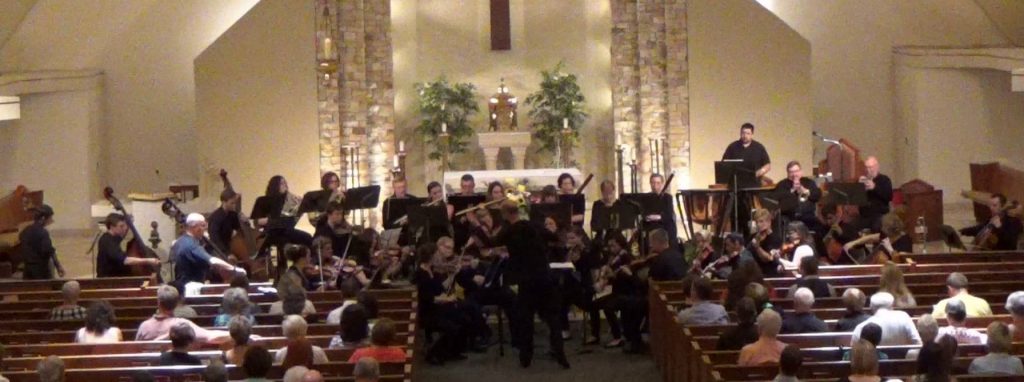Berks Sinfonietta continues its online concert series on Saturday, May 29 at 7;30 pm. The concert can be viewed on Facebook and YouTube – simply join via www.berkssinfonietta.org.
The music for the May concert deals with loss and life, subjects that seem particularly relevant as we slowly return to normal after these many months of isolation and grief. The concert opens with Elgar’s “Elegy,” written shortly after the death of his dear friend August Jaeger. Jaeger was Elgar’s editor at Novello publishers, and an ardent champion of the emerging composer’s works. Although the composer never made a formal dedication, most scholars believe Elgar wrote this short, deeply felt elegy in memory of his friend.
English composer Philip Sawyers began composing as a teenager, shortly after picking up the violin for the first time at the age of 13 and remains a proudly self-taught composer. In the last few years, his talent has been increasingly recognized, with commissions and performances by orchestras throughout Europe and the United States. His “Songs of Loss and Regret,” sets eight poems by Houseman, Tennyson, Owen, Gray, Morris, and words taken from the Apocrypha. Mezzo-soprano Jamie Caporizo, Alvernia University’s Director of Campus Ministry, joins us for this American premiere.
“Amazing Grace” was written by former slave ship captain and slave trader John Newton, later ordained by the Church of England. Published in 1779, the hymn was not heard in America until the early 19th century, set to the now-famous tune “New Britain.” Jennifer Higdon’s deeply personal and moving setting was originally composed as part of the larger vocal choir work Southern Grace. Soon thereafter she made arrangements for string quartet and string orchestra. The music, variations on the theme, moves through different tempi, finally reaching a state of peaceful rapture in the coda.
Ruth Gipps was one of the most fascinating women in the English music world during the 20th century. A true pioneer, she founded and conducted the Portia Wind Ensemble, a chamber music group comprised entirely of women that provided an important outlet for composers throughout the past fifty years. Seascape, a fascinating picturesque work, is written for ten wind players.
Arvo Pärt’s “Fratres” (“Brothers” in Latin) exists in several different orchestrations. A few years ago, Berks Sinfonietta performed the string orchestra version, but in May’s concert we perform the wind ensemble version. Described as a “mesmerizing set of variations on a six-bar theme” the music encapsulates Pärt’s observation that ‘the instant and eternity are struggling within us’.”
The program closes with the fifth of Handel’s “Concerto Grossi, op. 6.” Handel composed this set of twelve concerti in the autumn of 1739. This concerto blends elements of diverse Continental styles, which suited the cosmopolitan tastes of the London public. The opening movement features stately rhythms, thickly ornamented with trills and flourishes, while the second and fourth movements show reveal a particularly German preoccupation with counterpoint, though both have moments of Italianate lyricism. The triple meter, balanced phrases, and two-part form of the third movement Presto suggest the French courante and the closing minuet’s walking bass line is another example of the Italian style.
Viewing is free and available to all. Berks Sinfonietta request donations equaling normal ticket costs ($15/Adult and $5/Child). Music of loss and music of life – join us for an evening of beautiful music, Saturday, May 29 at 7:30 pm.




